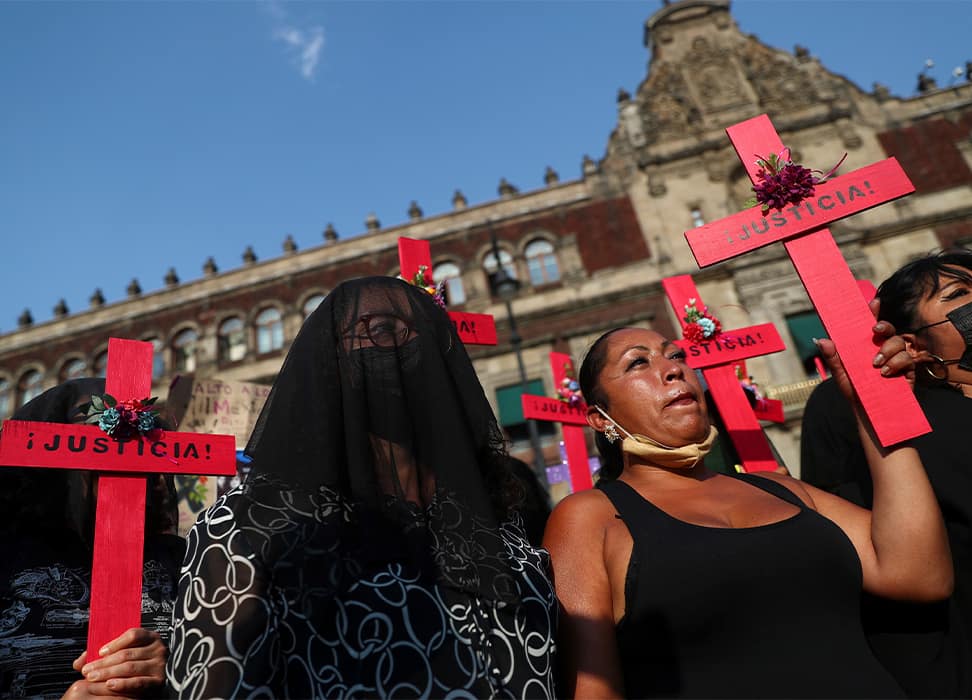Breaking The Silence on Femicide in Mexico.
Mexican women who survived attempted femicide are turning their haunting experiences into a struggle for justice.
By Rachel “Sink” Lindsay

Staggering Stats.
In Mexico, some 10 women and girls are killed every day by intimate partners or other family members, according to government data. The crimes have sparked several waves of protests and put gender violence at the top of Mexico’s political agenda.
Source: United Nations


Survivors Speak Out.
In her Breach/Valdez Award-winning documentary “The Survivors: Forgotten by Justice,” Mexican journalist Gloria Piña revealed that women and girls who survive gender-based violence are often left without protection or justice.
Source: United Nations
Systemic Issues.
Through her research on court cases and filed complaints, Piña discovered how legal loopholes, negligence, a lack of gender perspective in the legal system and harmful social norms allow a vast majority of violent attacks against women to go unpunished.
Source: United Nations


Dangerous Repercussions.
According to the documentary, Mexican prosecutors over the last eight years have opened 1.7 million criminal investigations for beatings, burns, strangulation, injuries with knives or firearms against women. Out of these, only 781 were initiated as attempted femicide. The rest were categorized as malicious injury or domestic abuse, crimes which carry lower sanctions.
Source: United Nations
Living in Fear.
Failure to prosecute such attacks as attempted femicide despite overwhelming evidence downplays the scale of the problem of violence against women and fuels a culture of impunity. Most of the survivors in Piña’s documentary live in fear of being attacked again by the same perpetrators, who remain free or are awaiting trial.
Source: United Nations


Tip of the Iceberg.
Femicide is the most extreme and brutal manifestation of violence against women, and it affects all regions and countries. In Mexico, femicide was added to the penal code in 2012, following public outcry over years of highly publicized killings of women and young girls.
Source: United Nations
Rallying Cry.
UN Human Rights in Mexico is supporting government institutions and civil society groups to end gender-based violence. Initiatives are aimed at improving the prosecution of femicide cases by bolstering due diligence and training forensic doctors and court officials to incorporate a gender perspective into their work.
Source: United Nations


Rebuilding Their Lives.
The women who appear in the documentary have turned their traumatizing experiences into a struggle for justice and have formed support groups that are helping them heal from loss and emotional pain.
Source: United Nations
“Survivors of attempted femicide want justice so they can rebuild their personal and emotional lives.”
– Gloria Piña, Award-winning Mexican journalist

Watch films related to this topic
Stay Informed with our Newsletter.
Receive exclusive invitations to our programs; free films to watch from free film collection Voices For Change; news about gender equality around the world; and access to our partners’ programs.




